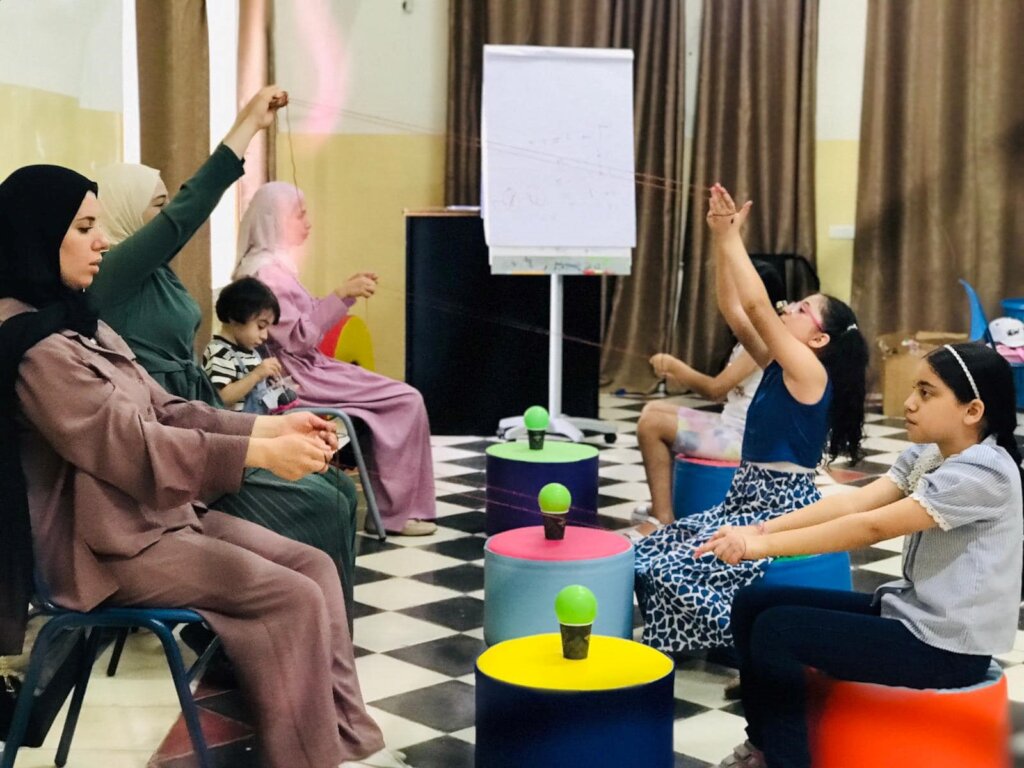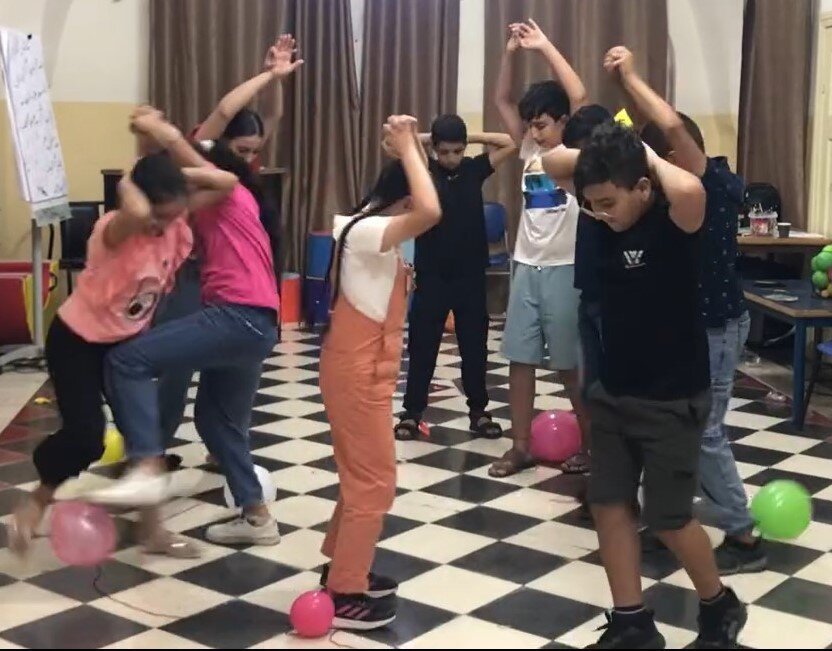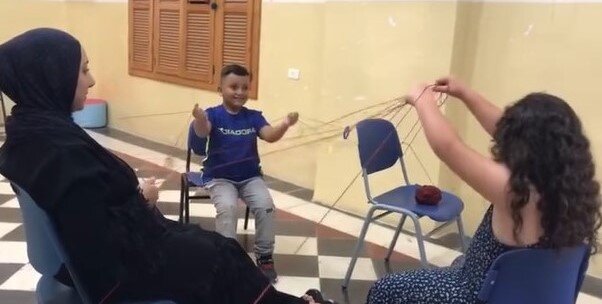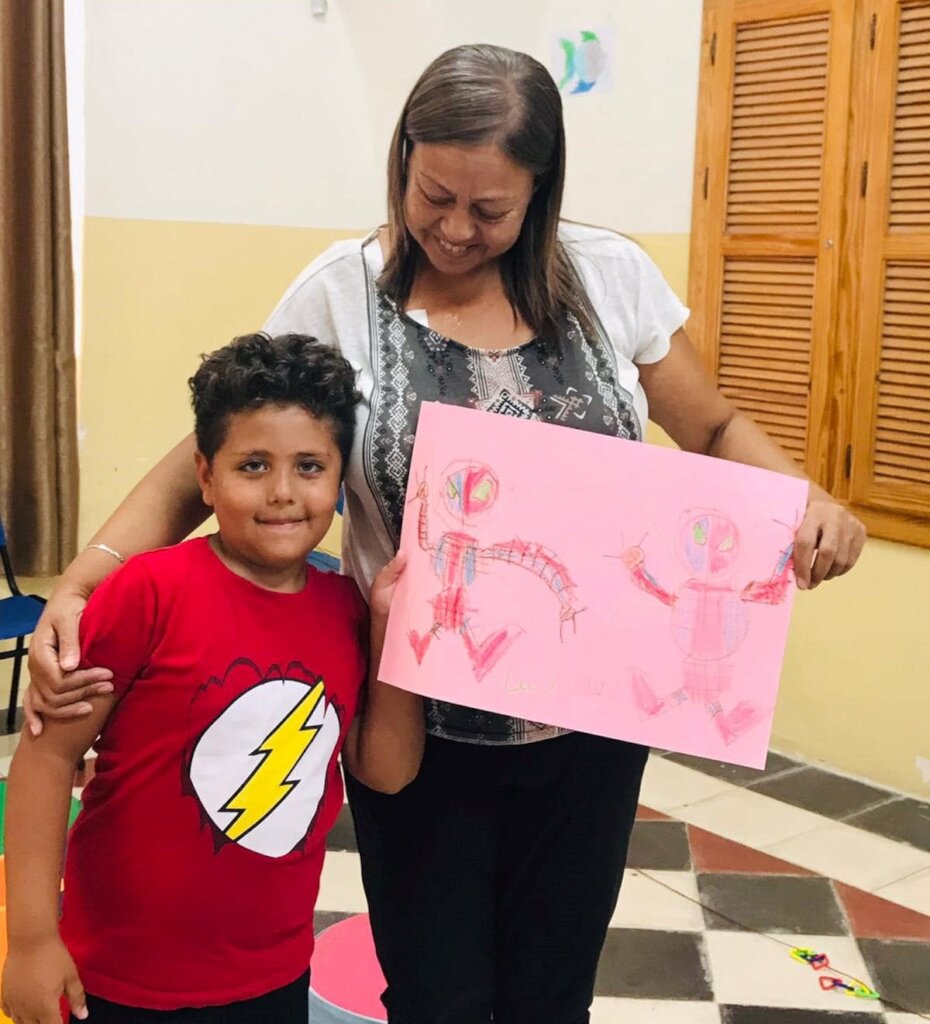By Matthew Dayton-Welch & Wendy Whiting Blome | Project Leaders
For 100 years the Spafford Children’s Center (SCC) has been committed to providing services to Palestinians in East Jerusalem and the surrounding areas. Through wars and pandemics as well as changes in boundaries and governing authorities, the SCC has adapted to current needs and conditions.
Now the need is for trauma treatment for children, youth, and families who encounter daily infringements on their movements, body searches, and frequent intimidation by police and settlers in Jerusalem. Children react to trauma in varying ways: some become angry, others withdraw and lose interest in activities they once enjoyed, and some express sadness, guilt, or fear. Parents worry about their children’s sleep problems and nightmares in addition to their trouble concentrating on academic work.
Dalia, an 8-year-old girl, came to the SCC with significant communication challenges and a delay in expressive language development due in part to trauma she experienced when her home was searched in the middle of the night by soldiers. She was brought to the SCC by her mother and for the first few days she was very shy and hesitant to participate in group activities, preferring to stay on the sidelines. During some of the trauma exercises she and her mother worked together to move rings on a string, or control a ball between strings. It was silly and the mothers and daughters laughed as they strategized how to accomplish the goal. As she began to feel more comfortable with the SCC trauma specialist and social worker, Dalia agreed to participate in an expressive dance class at SCC. Soon she began to feel the freedom of moving with the music and found that she could express herself through graceful and rhythmic gestures. Dalia gained more confidence, culminating in a dance performance during a celebration day at SCC. Her parents were moved to tears as they witnessed her transformation.
This is just one child, just one example of the life-altering changes that occur every day at the SCC. Every child is valued as an individual with needs, strengths, desires, and goals. Through your generosity, more Palestinian children can get the help they need to grow up strong and resilient.
The Rev. Matthew Dayton-Welch, ChairandWendy Whiting Blome, PhD, Secretary/TreasurerAmerican Friends of the Spafford Children’s CenterBy Matthew Dayton-Welch & Wendy Whiting Blome | Project Leaders
By Matthew Dayton-Welch & Wendy Whiting Blome | Project Leaders
Project reports on GlobalGiving are posted directly to globalgiving.org by Project Leaders as they are completed, generally every 3-4 months. To protect the integrity of these documents, GlobalGiving does not alter them; therefore you may find some language or formatting issues.
If you donate to this project or have donated to this project, you can receive an email when this project posts a report. You can also subscribe for reports without donating.
Support this important cause by creating a personalized fundraising page.
Start a Fundraiser


